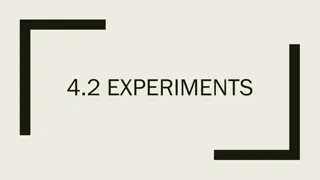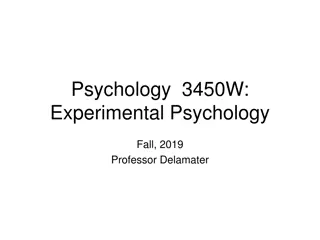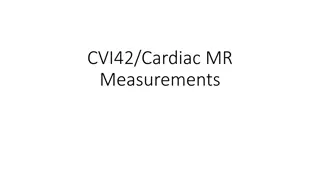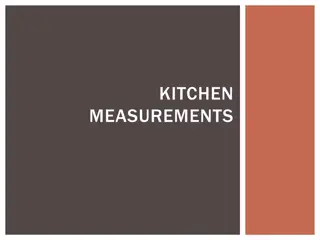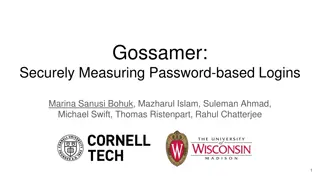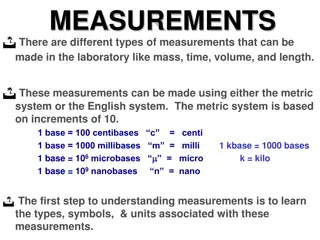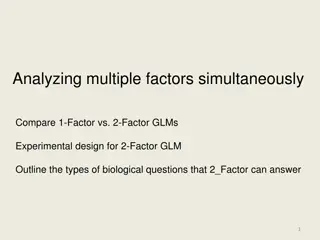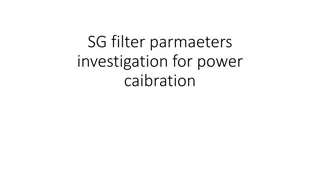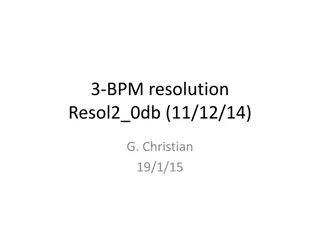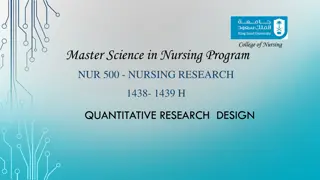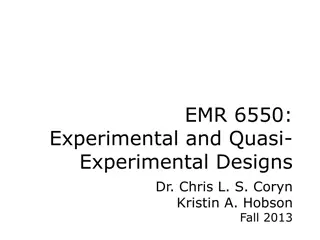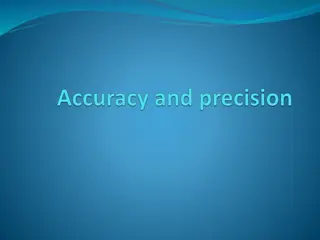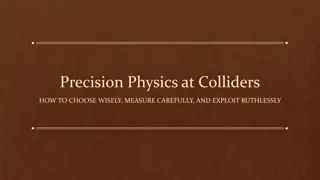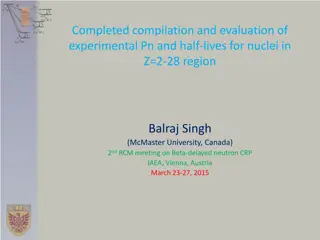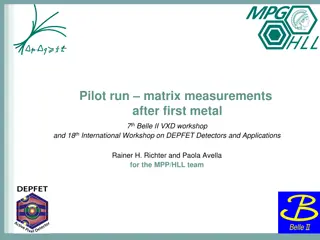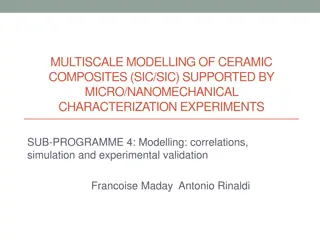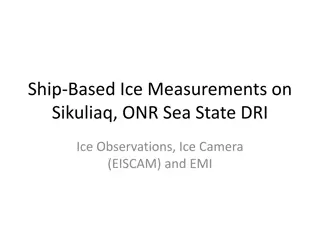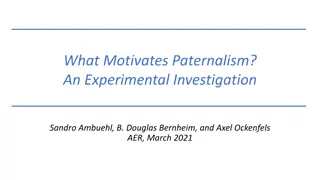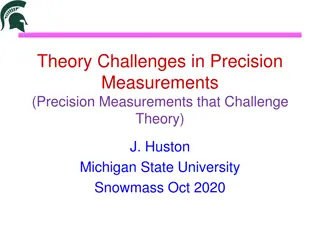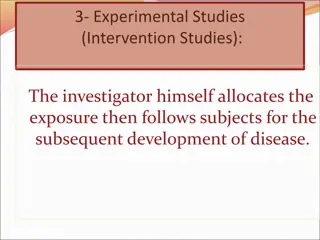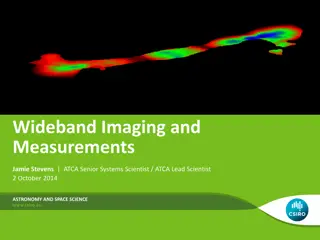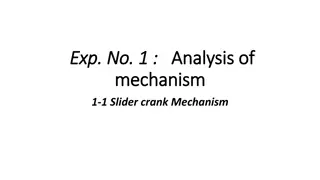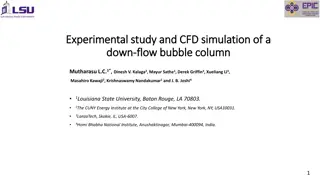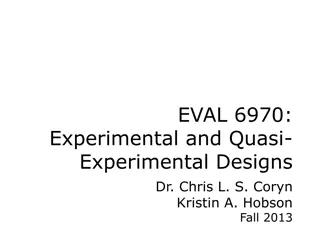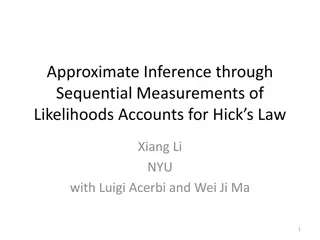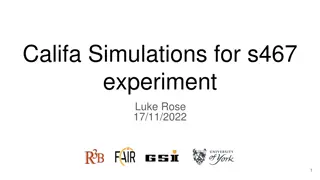Introduction to Experimental Economics by John Hey: A Comprehensive Overview
Explore the interconnected realms of Experimental Economics and Behavioral Economics through the insightful lectures of John Hey, an Emeritus Professor at the University of York. Discover the methodology of testing economic theories for validity and the practical applications of experimental economi
1 views • 58 slides
Insights on Experimental ASF Vaccines in Pig Studies
The research conducted by Prof. Jishu Shi and his team at Kansas State University delves into the safety and efficacy testing of experimental African Swine Fever (ASF) vaccines using pigs as the model. Various vaccines, including DNA vaccines and live attenuated viruses, were tested against differen
4 views • 13 slides
Understanding Nonexperimental and Quasi-experimental Studies
Nonexperimental and quasi-experimental studies resemble experiments but lack random assignment, making them valuable for group comparisons without establishing causation. This type of research design looks at differences between groups that already exist, focusing on group differences rather than ca
1 views • 35 slides
Understanding Experiments in Research: Observation vs. Experimentation
Observation and experiments are two crucial methods in research. An observational study involves observing and measuring variables without influencing responses, while an experiment deliberately applies treatments to measure responses. Confounding variables can affect the results, and factors like e
0 views • 13 slides
Understanding Experimental Psychology: Designs and Control Issues in Research
This content delves into the basics of experimental research, focusing on different types of experimental designs and control issues. It covers between-group and within-group designs, discussing advantages and disadvantages, as well as methods for controlling for nonequivalence. The importance of ra
0 views • 26 slides
Cardiac MR Measurements Guide
This guide provides detailed instructions and images on how to measure various parameters in cardiac MR imaging, including left ventricle measurements in diastole and systole, LA measurements, aorta measurements, and EF calculations using CVI42 software. It also includes steps for phase calculations
0 views • 8 slides
Understanding Probability: Experimental and Theoretical Concepts
Probability is the measure of the likelihood of an event happening, with experimental and theoretical probability being key concepts. Experimental probability involves determining probabilities through experience or experiments, while theoretical probability can be calculated without prior experienc
2 views • 23 slides
Importance of Measurements in Society
Measurements play a crucial role in society's proper functioning, involving units like ounces, pounds, inches, and cups for accuracy. Customary and metric systems are compared for distance, area, volume, weight, and temperature. Measuring equipment like liquid measuring cups ensures precise measurem
0 views • 24 slides
Wenxin Wang EUDET Annual Workshop 2010 Data Analysis Results
Wenxin Wang presented data analysis results at the EUDET Annual Workshop in 2010, showcasing testing and measurements of various modules and panels for TPC systems. The results include drift velocity measurements, comparisons of resistive ink and Kapton materials, and analysis of the Pad Response Fu
0 views • 16 slides
Safely Logging Password-Derived Measurements for Web Login Systems
Design a secure measurement framework called Gossamer to assess risks associated with password-based measurements for web login systems. Explore ways to differentiate between benign and malicious traffic, and consider adding instrumentation to enhance security. Learn how attackers exploit password-d
0 views • 12 slides
Understanding Laboratory Measurements: Types, Units, and Symbols
Different types of measurements such as mass, time, volume, and length can be made in the laboratory using the metric or English system. Learn about the units, symbols, and instruments associated with these measurements for length, mass, volume, temperature, time, heat, and pressure. Explore how to
0 views • 15 slides
Analyzing Experimental Design with One-Factor and Two-Factor GLMs
Comparing the experimental designs of one-factor (1-way ANOVA) and two-factor GLMs, this content explores biological questions that can be answered through the analysis of multiple factors simultaneously in experiments. It discusses sample sizes, drug treatments, factor levels, and concentration var
1 views • 13 slides
Optimizing SG Filter Parameters for Power Calibration in Experimental Setup
In this investigation, the aim is to find the optimal SG filter parameters to minimize uncertainty in power calibration while avoiding overfitting. Analyzing power calibration measurements and applying SG filter techniques, the process involves comparing different parameters to enhance filter perfor
0 views • 21 slides
Quiz Review on Scientific Method and Graphing
Explore a quiz review covering topics related to scientific method, graphing, and experimental design. Understand key concepts such as hypothesis, scientific law, theory, variables, and experimental control through detailed questions and images. Test your knowledge on laboratory safety, inferences,
0 views • 14 slides
Analysis of Resolution and Residuals in Experimental Data
This document presents an analysis of experimental data including resolution figures, residuals from fitting, and positional jitter. It explores single point analysis, charge references, and resolution as a function of sample number. The data is thorough and detailed, providing insights into the acc
0 views • 13 slides
Understanding Quantitative Research Designs in Nursing
Delve into the world of quantitative research in nursing, exploring different research designs and the concept of causality. Learn about experimental, quasi-experimental, and non-experimental designs, as well as the characteristics of experimental design like manipulation, control, and randomization
0 views • 22 slides
Quasi-Experimental and Interrupted Time-Series Designs Overview
Explore the various quasi-experimental designs, control groups, pretests, and outcome patterns in research methodologies. Understand the implications of different outcome patterns on causal interpretation and validity threats in experimental studies.
0 views • 31 slides
ESA Validation Approach & Fiducial Reference Measurements Overview
The validation approach outlined by ESA focuses on providing reliable products with documented error bars and enhancing algorithm and sensor quality. A validation program consists of various activities, including validation against precise reference measurements, in-situ validation, inter-satellite
0 views • 8 slides
Understanding Accuracy, Precision, and Error in Scientific Measurement
Accuracy and precision are crucial in scientific measurements. Accuracy refers to how close a measurement is to the true value, while precision reflects the consistency of repeated measurements. Understanding and calculating percent error help in evaluating the reliability of data. The difference be
0 views • 13 slides
Experimental Setup at IP5 for Inelastic Events and Particle Detection
Experimental setup at IP5 involves inelastic telescopes for charged particle detection and vertex reconstruction. The setup includes T1 and T2 telescopes, HF and CASTOR detectors, as well as Roman Pots for measuring elastic and diffractive protons. The TOTEM experiment focuses on proton-proton inter
0 views • 27 slides
Precision Physics at Colliders: Choosing Wisely, Measuring Carefully, and Exploiting Ruthlessly
Precision Physics at Colliders explores the selection, measurement, and utilization of data at colliders, focusing on fundamental symmetries and parameters of the Standard Model. The lectures cover topics such as QCD, top, electroweak, and flavor physics, emphasizing the importance of precision meas
0 views • 42 slides
Understanding Experimental Design in Biology
Explore key concepts in experimental design in biology through clicker questions focusing on hypotheses, variables, control groups, and experimental groups. Learn how scientists test hypotheses and analyze results to draw valid conclusions in biological studies.
0 views • 15 slides
Compilation and Evaluation of Experimental Data for Nuclei in Z=2-28 Region
Completed compilation and evaluation of experimental Pn and half-lives for nuclei in the Z=2-28 region, led by Balraj Singh at McMaster University. The work involved preparing lists of neutron-rich nuclides, identifying potential emitters, analyzing available experimental data for 1n, 2n, 3n, and 4n
0 views • 20 slides
Matrix Measurements and Analysis After First Metal Workshop
The pilot run matrix measurements were conducted following the 7th Belle II VXD workshop and the 18th International Workshop on DEPFET Detectors and Applications by Rainer H. Richter and Paola Avella for the MPP/HLL team. The measurements included assessing defects, diode integrity, metal shorts, an
0 views • 30 slides
Advances in Ceramic Composite Property Modeling and Experimental Characterization
European research focuses on advanced modeling of C/C, C/SiC, and SiC/SiC composites for aerospace and nuclear applications, with an emphasis on correlating simulations with experimental validation. Laboratories are progressing towards a multiscale approach, integrating micro/nanomechanical characte
0 views • 5 slides
Comprehensive Ship-Based Ice Measurements and Observations on Sikuliaq for Sea State DRI
This collection of images showcases various ship-based ice measurements and observations conducted on the research vessel Sikuliaq for Sea State DRI. The images include aspects such as sea ice observations, snow and ice thickness measurements, evaluation of orthorectification, and new snow and ice i
0 views • 8 slides
What Motivates Paternalism? An Experimental Investigation
Centuries of normative debate on paternalism have resulted in its ubiquity in various aspects of society, from consumer protection to safety regulations. However, there is a scarcity of empirical studies on the motivations behind paternalistic interventions. This experimental investigation delves in
0 views • 12 slides
Advancing Precision Measurements in High-Energy Physics
Exploring the challenges and advancements in precision measurements for high-energy physics experiments, focusing on improving theoretical models and experimental techniques to enhance understanding of phenomena like the Higgs sector. Efforts include extending the precision of current measurements,
0 views • 17 slides
Understanding Experimental Studies: Intervention, Characteristics, and Measurements
Experimental studies involve the investigator assigning exposures and following subjects to observe disease development. Different types of experimental studies exist, such as preventive and therapeutic types, each with its limitations, including ethical concerns and challenges in recruiting subject
0 views • 13 slides
Wideband Imaging and Measurements in Astronomy
Wideband imaging and measurements play a crucial role in astronomy and space science. This involves utilizing wide bandwidths to make accurate measurements and create images for continuum mapping and spectral-line observations. Increasing bandwidth enables lower thermal noise levels, quicker identif
0 views • 32 slides
Understanding Research Methods and Data Analysis
This review covers topics such as experimental classification, the comparison of non-experimental and experimental research, software features like JMP and SPSS, outlier handling in data analysis, and levels of measurement in statistical analysis.
0 views • 13 slides
Vietnam Neutrino School Overview
Vietnam School on Neutrino is an annual event started in 2017 to promote experimental neutrino physics in Vietnam. Led by Prof. Jean Tran Thanh Van, the school focuses on lectures, software and hardware training, group works, and excursions. With a mix of students from various countries, the aim is
0 views • 7 slides
Analysis of Slider-Crank Mechanism and Experimental Data
Slider-crank mechanism analysis involves understanding the transformation of input motion into desired output motion. This mechanism consists of a crank, coupler, slider, and ground link, converting circular motion into linear motion. Experimental procedures involve setting crank angles and recordin
0 views • 6 slides
Experimental Study and CFD Simulation of a Down-flow Bubble Column
This study and simulation focus on the experimental setup, measurement techniques, and results of a down-flow bubble column. It explores novel features such as inverted bubbly flow, micro-bubble generation, and gas injection. Detailed analysis includes axial and radial variations of volumetric gas h
0 views • 25 slides
Understanding Experimental and Quasi-Experimental Designs
Explore the foundations of experimental and quasi-experimental designs, delving into causal relationships, counterfactual reasoning, and the importance of validating statistical and internal conclusions. Learn about causes, effects, and the complexity of determining causation in research. Discover R
0 views • 46 slides
Sequential Approximate Inference with Limited Resolution Measurements
Delve into the world of sequential approximate inference through sequential measurements of likelihoods, accounting for Hick's Law. Explore optimal inference strategies implemented by Bayes rule and tackle the challenges of limited resolution measurements. Discover the central question of refining a
0 views • 29 slides
Understanding Probability: Learning Outcomes and Examples
This content delves into the study of probability, covering topics such as representing probabilities of simple and compound events, calculating relative frequencies, multi-step chance experiments, theoretical and experimental probabilities. It explains concepts like chance experiments, sample space
0 views • 31 slides
Understanding Experimental Studies in Epidemiology
Epidemiological studies and experimental studies play vital roles in understanding cause-and-effect relationships in research. Experimental studies involve manipulating independent variables and measuring dependent variables, with categories such as true experimental, quasi-experimental, and pre-exp
0 views • 22 slides
Califa Simulations and Experimental Observations in Nuclear Physics Research
Exploring nuclear physics research through Califa simulations and experimental observations with a focus on PID gating, clustering algorithms, beam settings, and Ca isotopes chain gating. The study involves simulating events on CH2 targets, analyzing clustering effects, and observing opening angles
0 views • 10 slides
FY25 LBS Lab OMEGA/OMEGA EP Proposed Campaign
Proposed campaign in FY25 by the LBS Lab to measure specific deliverables, compare results with experimental and theory PIs, collaborate with others, and assess technical issues such as target fabrication feasibility. The campaign involves motivation, relevant milestones, previous/simulated results,
0 views • 6 slides



